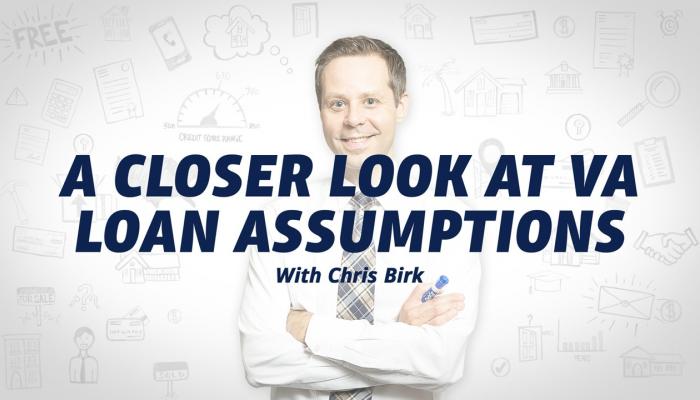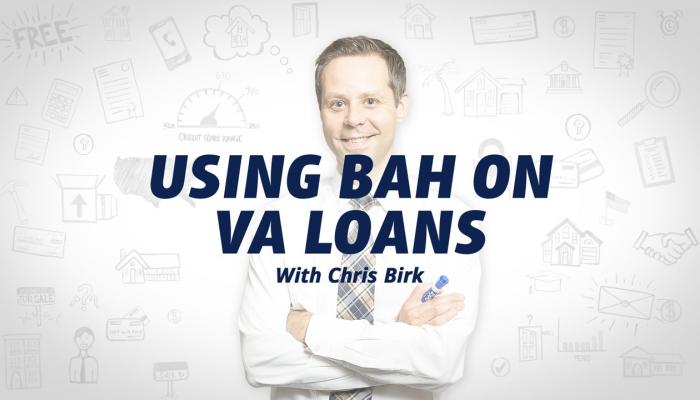Purchasing a home can be a stressful time for buyers, but the stress doesn't stop with the buyer. Real estate agents also experience stress when a transaction doesn't go as planned. Stress is expected, especially when your income is not based on showings, but closings.
Some agents are hesitant to work with VA buyers because they believe VA loans require more work and as a result, more stress. But this doesn't have to be the case.
Here are four tips for a stress free VA loan transaction.
One: Find a move-in ready property
The Department of Veterans Affairs established Minimum Property Requirements (MPRs) to ensure homes purchased using the VA loan guaranty are safe, structurally sound and sanitary. Being aware of the MPRs and noting any issues you notice during a walk-through can save your buyers a lot of time. Explain the purpose of the MPRs to your buyers and show them properties considered move-in ready. Avoiding properties requiring significant repairs can save your buyers time, money and a lot of stress.
Two: Understand buyer's financial situation
Some agents may think that simply knowing the preapproval amount is enough, but really it just scratches the surface. You don't need to get into specifics on your buyer's finances -- that's the loan officer's job -- but you do need to have a good understanding of their overall financial situation.
VA loans have a qualification overlay in addition to the debt-to-income ratio called residual income. It's a specified amount of money the buyer must have leftover each month to cover expenses like food an clothing. The Department of Veterans Affairs established these figures based on location and household size. You need to know how changes in taxes and insurance or additional fees like a homeowners association could impact the buyer's residual and as a result their loan approval.
It's also important to have a general conversation with the loan officer regarding whether the buyer's can comfortably afford a certain loan amount or if the preapproval amount is the absolute max they can afford. When you start pushing up against the absolute maximum amount they can afford, small changes in things like taxes and insurance could push their loan over the edge into denial once the file hits an underwriter's desk.
» CALCULATE: Calculate your VA Loan savings
Three: Set a closing date 45 days out
The average VA purchase loan closed in 39 days in January 2015 (compared to 38 days for conventional and 42 days for FHA). Some VA loans will close much sooner and others may take longer. As you know, every transaction is unique.
Build in a little wiggle room in the closing date by requesting 45 days to close. You can always close earlier. Building in a few extra days will save you some time and stress if an issue arises. It may also avoid the necessity of going back to the seller with a request to extend the closing date.
Four: Talk with loan officer before making offer
Communicating with your buyer's loan officer prior to making an offer will help you better prepare and reduce the back-and-forth. A few things a loan officer may discuss with you include the following:
- VA Amendment to Contract -- This document is required on every VA loan transaction. The lender may have a specific form they prefer to use for this amendment. Include it with your initial offer so you don't have to go back and get signatures later.
- Closing Costs -- Does your buyer need to negotiate seller-paid closing costs? What are the estimated closing costs for this specific property? The loan officer can help you estimate a dollar amount or percentage based on past closings and estimated fees.
- Concessions -- Closing costs and concessions are two different things. There is no limit on the amount of closing costs a seller can pay, but there is a four percent cap on concessions. Discuss whether your client needs to negotiate for concessions to cover items like the VA Funding Fee or a loan payoff.
- Unique Property Issues -- Is there something about the property that is unique or raised a red flag during the walk-through? Talk with the loan officer about these issues prior to making an offer. It could save your buyer money by skipping over a property with costly repairs or one that may not be eligible for VA loan financing.
Do you have specific questions on the VA loan process or VA homebuyers? Feel free to reach out to me directly via email at education@vu.com.
Answer a few questions below to speak with a specialist about what your military service has earned you.
Related Posts
-
 VA Loan Assumption: Breaking Down How VA Assumptions WorkAssuming another's VA loan is an intriguing benefit with VA loans. Here we take a look at what an assumption is, the process and who can assume a VA loan.
VA Loan Assumption: Breaking Down How VA Assumptions WorkAssuming another's VA loan is an intriguing benefit with VA loans. Here we take a look at what an assumption is, the process and who can assume a VA loan. -
 Using Basic Allowance for Housing (BAH) on VA LoansAn incredibly powerful benefit of the VA home loan is military members' ability to use their Basic Allowance for Housing (BAH) towards their mortgage payments. BAH rates depend on several different factors, so it's crucial to verify your amount with the DOD.
Using Basic Allowance for Housing (BAH) on VA LoansAn incredibly powerful benefit of the VA home loan is military members' ability to use their Basic Allowance for Housing (BAH) towards their mortgage payments. BAH rates depend on several different factors, so it's crucial to verify your amount with the DOD.


